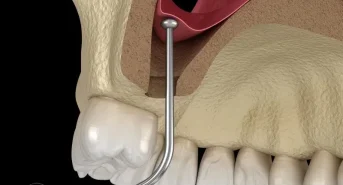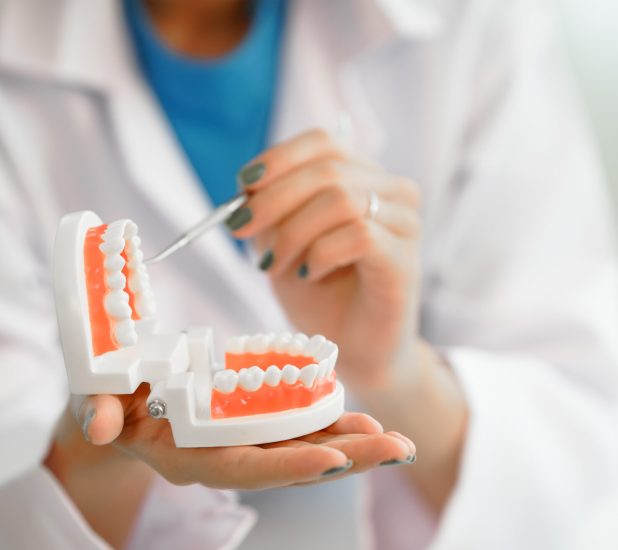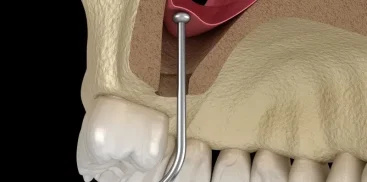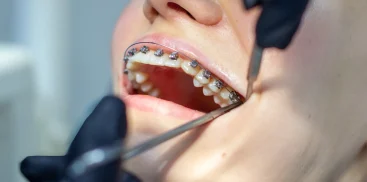Stress accompanies us in various life situations, whether they are related to work or personal life. It not only affects psychological aspects but also has a significant impact on the health of the entire body, including the oral cavity. Learn how stress can negatively affect oral health and overall body condition, as well as how to deal with its effects.
Does Stress Have a Negative Impact on Dental Health?
Stress can have a complex impact on oral health. Although it doesn’t always directly lead to deterioration of dental health, prolonged or intense stress can result in harmful habits such as teeth grinding or clenching. These habits can lead to tooth damage and worsen their condition.
Additionally, stress can influence our diet. People experiencing chronic stress often reach for snacks and food rich in sugars and fats, which can contribute to tooth decay. Poor dietary habits and irregular meal consumption can also increase the risk of plaque formation, which in turn can lead to periodontal disease.
To take care of your teeth, it’s important to reduce stress and lead a healthy lifestyle, including a healthy diet and regular oral hygiene habits.
Are Teeth Grinding and Mouth Ulcers Symptoms of Stress?
Teeth grinding, also known as bruxism, is a common phenomenon associated with stress. Due to tension, both during sleep and while awake, people often unconsciously clench their jaws and grind their teeth. This habit can lead not only to tooth damage but also to discomfort such as temporomandibular joint pain and headaches.
Mouth ulcers, or oral mucosal ulcers, are another problem often associated with stress. Although there are many factors contributing to the occurrence of mouth ulcers, stress can weaken the body’s immune system, making them more likely to occur. Mouth ulcers can be painful and can interfere with daily functions such as eating and speaking.
If you’re dealing with teeth grinding or mouth ulcers, it’s worth consulting a doctor to learn the best methods to manage and alleviate their symptoms.
Can Stress Harm Your Gums?
Stress can negatively impact the health of your gums. People exposed to stress are more susceptible to bacterial infections in the oral cavity, which can lead to gum inflammation. In its advanced form, inflammation can progress to periodontal disease, a serious gum disease that can even lead to tooth loss. Additionally, stress can reduce the body’s ability to regenerate and fight infections, delaying healing processes in the oral cavity.
How to Take Care of Your Oral Health?
To ensure healthy gums and teeth and minimize the negative impact of stress, it’s important to follow a few simple rules:
- Balanced diet: Limit sugar and fats intake while ensuring an adequate amount of vitamins and minerals
- Prevention of teeth grinding: If you notice teeth grinding, consult a dentist who can recommend special night guards or appliances
- Relaxation techniques: Regularly practice relaxation techniques such as breathing exercises, yoga, or meditation to reduce stress levels
- Regular dental visits: Regular check-ups with a dentist allow for early detection of potential problems and effective treatment
Why Are Regular Dental Visits Important?
Regular check-ups with a dentist or dental hygienist are essential for maintaining oral health. During these visits, the condition of teeth and gums can be effectively monitored, professional advice on oral hygiene can be obtained, and preventive treatments can be performed. Early identification of potential problems helps avoid more serious complications and costly treatments in the future.
Effects of Stress on Oral Health – How to Prevent Them?
Stress can significantly affect the health of our oral cavity, causing teeth grinding, mouth ulcers, or gum problems. Therefore, it’s important to counteract stress through proper diet, relaxation techniques, and regular visits to the dentist or dental hygienist. Take care of your oral health – schedule a visit to Warsaw Denta Center today at +48 22 542 18 04.










